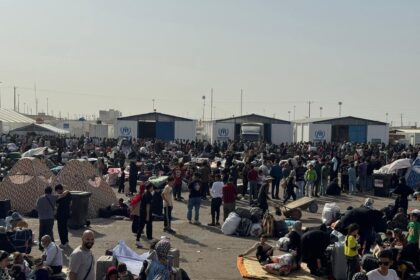RASC News Agency: The House of Free Expression has denounced the United Nations Assistance Mission in Afghanistan’s (UNAMA) recent report on the state of Afghanistani journalists and media, labeling it incomplete and insufficient in portraying the severe challenges confronting freedom of expression and the media. Afghanistani journalists exiled in Europe and North America have similarly criticized the report, asserting that its statistics on violence against journalists significantly downplay the gravity of the situation, inadvertently sanitizing the Taliban’s repressive actions.
The report, covering the period from August 2021 to September 30, 2024, documents 336 instances of human rights violations targeting journalists and media personnel. These include 256 cases of detention, 130 instances of torture and ill-treatment, and 75 cases of direct threats. However, Afghanistani journalists in exile issued a statement arguing that the report accounts for only 30% of the total incidents of violence against media practitioners during this period. According to their findings, over 1,000 cases of violence against journalists occurred between August 2021 and September 2024. Of these, 650 cases were documented with the consent of the affected journalists, media workers, or their families, including detailed information on the incidents, names, and locations. However, in approximately 400 cases, families declined to permit public disclosure of the events.
Exiled journalists report that at least 315 confirmed cases involved deprivation of freedom, including temporary or prolonged detention and imprisonment of journalists and media workers. They argue that UNAMA’s incomplete statistics undermine the rights of journalists and constitute an injustice to Afghanistan’s embattled media community. UNAMA acknowledged in its report the escalating challenges faced by Afghanistani journalists, highlighting pervasive censorship, restricted access to information, and systemic discrimination, particularly against women in the media.
The House of Free Expression, headquartered abroad, welcomed the publication of the report but criticized its failure to fully encapsulate the perilous conditions under which Afghanistani journalists operate. The organization underscored that the report underrepresents the daily adversities experienced by Afghanistan’s media landscape. It also noted critical oversights, such as the closure of more than 300 media outlets over the past three years and the unemployment of 90% of female journalists. Moreover, the report neglected to address the Taliban’s issuance of over 21 draconian directives that have effectively supplanted progressive media laws and the legal right to access information.
The House of Free Expression further criticized the omission of the vital role played by Afghanistan media organizations operating in exile. It emphasized that these external outlets remain an essential component of Afghanistan’s media ecosystem, serving as critical channels for raising awareness and ensuring accountability. The organization argued that their contributions must not be overlooked in any comprehensive assessment of Afghanistan’s media environment.






